 W
WKajetan Abgarowicz was a Polish journalist, novelist and short story writer of Armenian descent.
 W
WJerzy Andrzejewski was a prolific Polish author. His works confront controversial moral issues such as betrayal, the Jews and Auschwitz in the wartime. His novels, Ashes and Diamonds, and Holy Week, have been made into film adaptations by the Oscar-winning Polish director Andrzej Wajda. Holy Week and Ashes and Diamonds have both been translated into English. His novel The Gates of Paradise was translated into English by James Kirkup and published by Panther Books with the anglicised spelling "George Andrzeyevski".
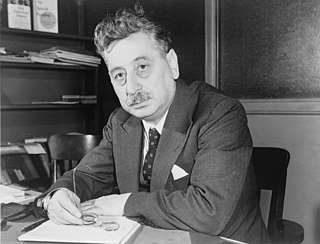 W
WSholem Asch, also written Shalom Ash, was a Polish-Jewish novelist, dramatist, and essayist in the Yiddish language who settled in the United States.
 W
WMiron Białoszewski, was a Polish poet, novelist, playwright and actor.
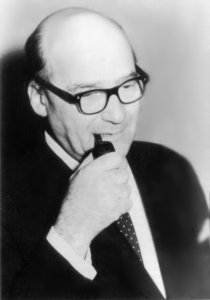 W
WRoman Brandstaetter was a Polish writer, poet, playwright, journalist and translator.
 W
WStanisław Leopold Brzozowski was a Polish philosopher, writer, publicist, literary and theatre critic. Considered to be an important Polish philosopher, Brzozowski is known for his concept of the philosophy of labour, rooted in Marxism. Besides Karl Marx, among his major inspirations were Georges Sorel, Friedrich Nietzsche, Henri Bergson, Thomas Carlyle, and John Henry Newman. Brzozowski's core idea was based on the concept of a socially engaged intellectual (artist). Although he was in favour of historical materialism, he strongly argued against its deterministic interpretation. In his philosophical approaches, Brzozowski rejected all concepts that were commodifying a human being.
 W
WEdmund Franciszek Maurycy Chojecki was a Polish journalist, playwright, novelist, poet and translator. Originally hailing from Warsaw, from 1844 he resided in France, where he wrote under the pen name Charles Edmond.
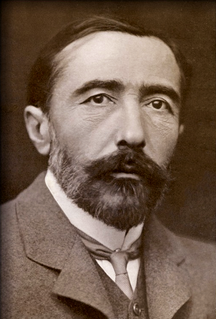 W
WJoseph Conrad was a Polish-British writer regarded as one of the greatest novelists to write in the English language. Though he did not speak English fluently until his twenties, he was a master prose stylist who brought a non-English sensibility into English literature. Conrad wrote stories and novels, many with a nautical setting, that depict trials of the human spirit in the midst of what he saw as an impassive, inscrutable universe.
 W
WTadeusz Dołęga-Mostowicz was a Polish writer, journalist and author of over a dozen popular novels. One of his best known works, which in Poland became a byword for fortuitous careerism, was The Career of Nicodemus Dyzma. Literary historians believe that the book inspired the 1971 novel Being There by Jerzy Kosiński who sparked considerable controversy in the West.
 W
WStanisław Dygat was a Polish writer. His most famous novel, "Jezioro Bodeńskie", was written during World War II and published in 1946. All of his works are partly autobiographical.
 W
WJarosław Gibas is a Polish novelist, sociologist, journalist and author of books about psychology of personal development.
 W
WCyprian Godebski was a Polish poet, novelist and father of writer Franciszek Ksawery. He was an outstanding poet of the so-called "Legions Poetry".
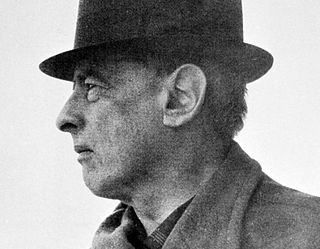 W
WWitold Marian Gombrowicz was a Polish writer and playwright. His works are characterised by deep psychological analysis, a certain sense of paradox and absurd, anti-nationalist flavor. Because he was a leftist, bisexual, and anticlerical who defied all party lines, his books were banned in communist Poland. In 1937 he published his first novel, Ferdydurke, which presented many of his usual themes: problems of immaturity and youth, creation of identity in interactions with others, and an ironic, critical examination of class roles in Polish society and culture. He gained fame only during the last years of his life, but is now considered one of the foremost figures of Polish literature. His diaries were published in 1969 and are, according to the Paris Review, "widely considered his masterpiece". He was a Nobel Prize candidate in Literature in 1966, according to a recently published database.
 W
WStefan Grabiński was a Polish writer of fantastic literature and horror stories. He is sometimes referred to as the "Polish Poe" or "Polish Lovecraft", although his works are often surrealistic or explicitly erotic in a way that sets him apart from both. He was an expert in parapsychology, magic and demonology and had an interest in the works of the German Expressionist filmmakers.
 W
WHenryk Grynberg is a Polish writer and actor who survived the Nazi occupation. He is an award-winning novelist, short-story writer, poet, playwright and essayist who had authored more than thirty books of prose and poetry and two dramas. Grynberg, known as the “chronicler of the fate of the Polish Jews”, tackled in his writings the Holocaust experience and the post-Holocaust trauma.
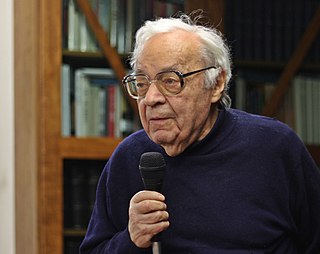 W
WJózef Hen, originally Józef Henryk Cukier, is a Polish novelist, essayist, playwright, screenwriter, and reporter of Jewish origin.
 W
WMaciej Hen is a Polish writer, translator and journalist.
 W
WKarol Irzykowski was a Polish writer, literary critic, film theoretician, and chess player. Between 1933–1939 in the Second Polish Republic he was a member of the prestigious Polish Academy of Literature founded by the decree of the Council of Ministers.
 W
WJuliusz Kaden-Bandrowski was a Polish journalist and novelist. Between 1933–1939 he was a secretary general of the prestigious Polish Academy of Literature in the Second Polish Republic.
 W
WTadeusz Konwicki was a Polish writer and film director, as well as a member of the Polish Language Council.
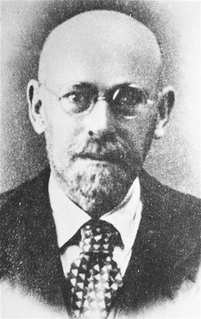 W
WJanusz Korczak, the pen name of Henryk Goldszmit, was a Polish Jewish educator, children's author and pedagogue known as Pan Doktor or Stary Doktor. After spending many years working as a principal of an orphanage in Warsaw, he refused sanctuary repeatedly and stayed with his orphans when the entire population of the institution was sent from the Ghetto to the Treblinka extermination camp by the Nazis, during the Grossaktion Warschau of 1942.
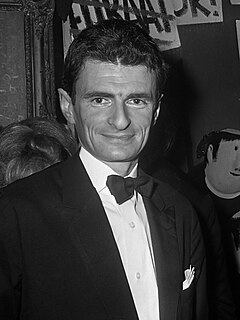 W
WJerzy Kosiński, born Józef Lewinkopf, was a Polish-American novelist and two-time President of the American Chapter of P.E.N., who wrote primarily in English. Born in Poland, he survived World War II and, as a young man, emigrated to the U.S., where he became a citizen.
 W
WMichał Dymitr Tadeusz Krajewski, sometimes also referred to as Dymitr M. Krajewski, was a Polish writer and educational activist of the times of the Enlightenment in Poland. His 1784 book Podolanka became the most debated and published Polish novel of that year, and his next book, Wojciech Zdarzyński, is considered to be the first Polish science-fiction novel.
 W
WIgnacy Błażej Franciszek Krasicki, from 1766 Prince-Bishop of Warmia and from 1795 Archbishop of Gniezno, was Poland's leading Enlightenment poet, a critic of the clergy, Poland's La Fontaine, author of the first Polish novel, playwright, journalist, encyclopedist, and translator from French and Greek.
 W
WJózef Ignacy Kraszewski was a Polish writer, publisher, historian, journalist, scholar, painter, and author who produced more than 200 novels and 150 novellas, short stories, and art reviews, which makes him the most prolific writer in the history of Polish literature and the seventh most prolific in the world. He is best known for his epic series on the history of Poland, comprising twenty-nine novels in seventy-nine parts.
 W
WLeon Kruczkowski was a Polish writer, publicist and public figure. He wrote books and dramas and was prominent in Polish theatre of the post-World War II period. His best known work is the drama Niemcy, written in 1949.
 W
WJózef Mackiewicz was a Polish writer, novelist and political commentator; best known for his documentary novels Nie trzeba głośno mówić, and Droga donikąd. He staunchly opposed communism, referring to himself as an "anticommunist by nationality". Mackiewicz died in exile. His older brother Stanisław Mackiewicz was also a writer.
 W
WRemigiusz Mróz is a popular and prolific Polish writer, and also a lawyer. He has already published 40 novels since his first books appeared in 2013. As of early 2019, none of his works have been published in an English translation.
 W
WIgor Newerly or Igor Abramow-Newerly was a Polish novelist and educator. He was born into a Czech-Russian family. His son is Polish novelist Jarosław Abramow-Newerly. His grandfather Józef Newerly, was a Czech national, who held a title of Lovtchiy to the court of Tsar Nicholas II of Russia.
 W
WFerdynand Antoni Ossendowski was a Polish writer, explorer, university professor, and anti-Communist political activist. He is best known for his books about Lenin and the Russian Civil War in which he participated.
 W
WJan Parandowski was a Polish writer, essayist, and translator. Best known for his works relating to classical antiquity, he was also the president of the Polish PEN Club between 1933 and 1978, with a break during World War II. He was born in Lwów, Austria-Hungary and died in Warsaw.
 W
WPiotr Paziński is a Polish writer. He has written three books: two on James Joyce and his fiction, and a novel Pensjonat, which won the Paszport Polityki award as well as the EU Prize for Literature. He works at the Warsaw-based Jewish magazine Midrash.
 W
WJerzy Pietrkiewicz or Peterkiewicz was a Polish poet, novelist, translator, and literary critic who spent much of his life in British exile.
 W
WJerzy Pilch was a Polish writer, columnist, and journalist. Critics have compared Pilch's style to Witold Gombrowicz, Milan Kundera, or Bohumil Hrabal.
 W
WAleksander Głowacki, better known by his pen name Bolesław Prus, was a Polish novelist, a leading figure in the history of Polish literature and philosophy, as well as a distinctive voice in world literature.
 W
WKazimierz Przerwa-Tetmajer was a Polish poet, novelist, playwright, journalist and writer. He was a member of the Young Poland movement.
 W
WStanisław Przybyszewski was a Polish novelist, dramatist, and poet of the decadent naturalistic school. His drama is associated with the Symbolist movement. He wrote both in German and in Polish.
 W
WWładysław Stanisław Reymont was a Polish novelist and the 1924 laureate of the Nobel Prize in Literature. His best-known work is the award-winning four-volume novel Chłopi.
 W
WAdolf Rudnicki, born Aron Hirschhorn was a Polish author and essayist, best known for his works about The Holocaust and the Jewish resistance in Poland during World War II.
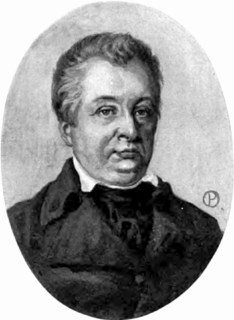 W
WHenryk Rzewuski was a Polish nobleman, Romantic-era journalist and novelist.
 W
WAndrzej Sapkowski is a Polish fantasy writer. He is best known for his book series The Witcher. His works have been translated into over 20 languages.
 W
WAndrzej Juliusz Sarwa a Polish prose writer, poet, journalist. A member of the Polish Writers' Union and the Polish Journalists Association, he has received the Order of Merit of the Republic of Poland. He is an author and co-author of over 200 books and a few hundred articles from different fields, including theological works on eschatology and demonology. Some of them are on the required reading list for theology and religious studies students at Polish universities, including the Jagiellonian University in Kraków, The University of Łódź, Catholic University of Lublin, and Cardinal Stefan Wyszyński University in Warsaw.
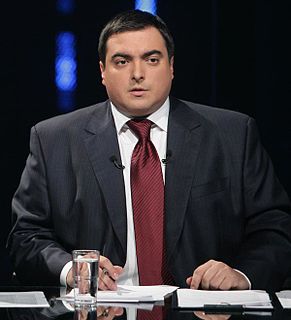 W
WTomasz Sekielski is a Polish journalist and novelist, author of reportages and documentary films, including Tell No One, a 2019 documentary about child sexual abuse in the Catholic Church in Poland, that sparked a nationwide discussion.
 W
WHenryk Adam Aleksander Pius Sienkiewicz, also known by the pseudonym Litwos [ˈlitfɔs], was a Polish journalist, novelist and Nobel Prize laureate. He is best remembered for his historical novels, especially for his internationally known best-seller Quo Vadis (1896).
 W
WWacław Kajetan Sieroszewski was a Polish writer, Polish Socialist Party activist, and soldier in the World War I-era Polish Legions. For activities subversive of the Russian Empire, he had spent many years in Siberian exile.
 W
WFryderyk Florian Skarbek, a member of the Polish nobility, was an economist, novelist, historian, social activist, administrator, politician, and penologist who designed the Pawiak Prison of World War II ill fame.
 W
WWłodzimierz Sokorski was a Polish communist official, writer, military journalist and eventually a Brigadier General in the People's Republic of Poland. He was the Minister of Culture and Art responsible for the implementation of the socialist realist doctrine in Poland. During World War II he escaped to the Soviet Union.
 W
WMarcin Szczygielski is a Polish writer, journalist and graphic designer. He is an author of theatrical plays, novels for adults and for teenagers. Since December 2012 he has been a member of Stowarzyszenie Pisarzy Polskich.
 W
WHenryk Waniek is a Polish artist, stage-set designer, author-journalist and commentator on literature and the arts.
 W
WMichał Witkowski is a Polish novelist.
 W
WWłodzimierz Wolski was a Polish poet, novelist, translator, and librettist. He is best known as the author of the libretto to Stanisław Moniuszko's opera Halka.
 W
WJan Chryzostom Zachariasiewicz was a Polish novelist and journalist.
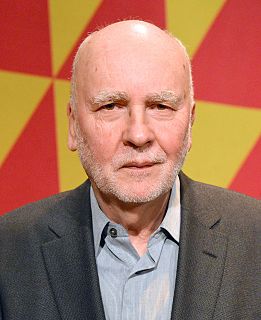 W
WAdam Zagajewski is a Polish poet, novelist, translator and essayist. He was awarded the 2004 Neustadt International Prize for Literature, the 2016 Griffin Poetry Prize Lifetime Recognition Award and the 2017 Princess of Asturias Award for Literature. He is considered as one of the leading poets of the Generation of '68' or the Polish New Wave and is one of Poland's most prominent contemporary poets.
 W
WWłodzimierz Zagórski, pseudonymes Chochlik, Publicola, was a Polish writer, popular satirist, prosaist, publicist. Officer of Austrian Army.
 W
WKazimierz Zalewski, pseudonym Jerzy Myriel, was a Polish dramatist, literary and theatre critic, one of the leading author of middle-class positivistic drama.
 W
WEmil Zegadłowicz was a Polish poet, prose writer, novelist, playwright, translator, expert of art; co-originator of Polish expressionism, member of expressionists' group Zdrój, co-founder of group Czartak.
 W
WStefan Żeromski was a Polish novelist and dramatist belonging to the Young Poland movement at the turn of the 20th century. He was called the "conscience of Polish literature".
 W
WJerzy Żuławski was a Polish literary figure, philosopher, translator, alpinist and nationalist whose best-known work is the science-fiction epic, Trylogia Księżycowa, written between 1901 and 1911.